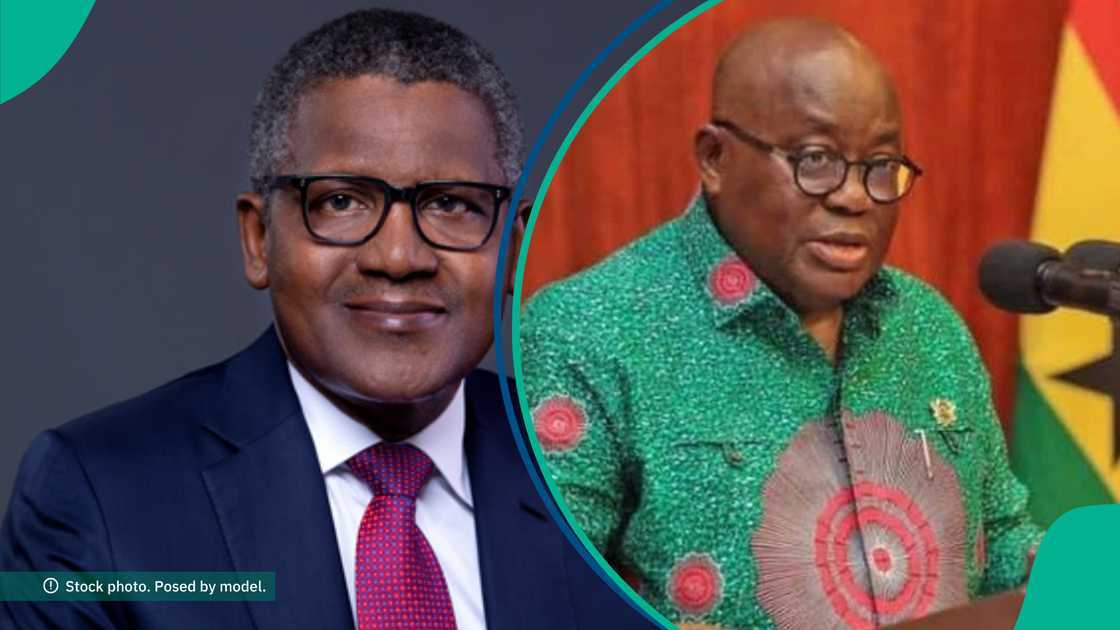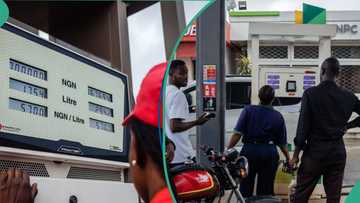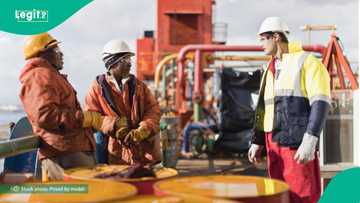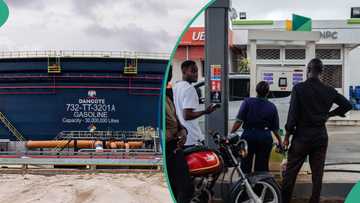Ghana Proposes Use of ECOWAS Currency Instead of Dollar to Buy Dangote Petrol
- Ghana has hinted that African countries would agree on a common currency to buy Dangote petrol to dampen demand for dollars
- The West African nation also stated interest in buying petroleum products from the refinery once the facility is operating at full capacity
- The head of the country's oil regulator said that patronising the Nigerian refinery would cut more expensive exports from Europe
Legit.ng journalist Victor Enengedi has over a decade's experience covering Energy, MSMEs, Technology and the stock market.
Ghana is advocating for a unified currency across the Economic Community of West African States (ECOWAS) members to facilitate fuel transportation from the Dangote Petroleum Refinery and streamline other business dealings.
Mustapha Abdul-Hamid, chairman of Ghana's National Petroleum Authority, shared this proposal during the ongoing OTL Africa Downstream Energy Week in Lagos.

Source: UGC
ECOWAS currency for Dangote fuel deals
Abdul-Hamid highlighted that Africa's heavy reliance on the dollar places excessive strain on local currencies, causing them to depreciate.
He noted that Ghana would require dollars to import fuel from the Dangote refinery, just as Nigeria would need dollars to import from Ghana, arguing that this arrangement was impractical.
He said:
"To an extent, that doesn’t make a lot of sense to me. Therefore, we should move to a point whereby we actualise this goal of having a common currency for all of us.It is our demand for dollars to import petroleum products that put pressure on our various currencies. That drives petroleum product prices upwards."
Abdul-Hamid explained that with Nigeria’s shift to a deregulated petroleum market, currency fluctuations would primarily drive petroleum prices, as importers would require more dollars to bring in petroleum products.
On collaboration within the petroleum sector, he emphasised that although ECOWAS member states may have varying political goals, aligning these interests is essential to creating a unified agenda that enables mutual market benefits.
Reduction on reliance on dollar
Speaking exclusively with Legit.ng, Tunde Akinlami, a Lagos-based economist agrees with Abdul-Hamid.
He said that a single ECOWAS currency could greatly benefit West African countries purchasing petrol from Dangote, reducing reliance on the U.S. dollar and mitigating exchange rate fluctuations.
Akinlami said:
"This currency would simplify transactions, lower currency conversion costs, and enhance trade stability within the region. It would also foster economic integration and strengthen ECOWAS members’ collective bargaining power, potentially lowering fuel prices. Additionally, trading in a shared currency can ease inflationary pressures by improving currency value stability, particularly for countries heavily reliant on petroleum imports."
He added that over time, this move could help West Africa build economic resilience and foster sustainable regional growth and cooperation.
Ghana interested in patronising Dangote Refinery
Abdul-Hamid expressed Ghana's interest in importing fuel from the Dangote refinery once it reaches its 650,000 barrels-per-day production capacity, noting that Nigeria alone would likely not consume the entire output.
According to Reuters, he remarked that this option would be preferable to importing refined petroleum from Rotterdam in the Netherlands.
He further advocated for deeper alliances, suggesting that collaboration should extend beyond petroleum authorities to involve substantial governmental cooperation, aligning petroleum infrastructure as well as fiscal and economic policies.
Expert explains why fuel prices remain high
Meanwhile, Legit.ng earlier reported that petrol prices in Nigeria will be influenced by global factors, local market conditions, and production costs rather than local production alone.
Smart Opeyemi, an independent petroleum marketer, explained this while discussing why petrol cannot be cheap in Nigeria.
He said that even though Dangote Refinery is producing locally, the price of crude oil and other production costs will mostly depend on global factors.
He also explained that, with the petrol subsidy removed, Nigerians will now pay prices that reflect the full cost of refining, logistics, and distribution.
Proofreading by Nkem Ikeke, journalist and copy editor at Legit.ng.
PAY ATTENTION: Сheck out news that is picked exactly for YOU ➡️ find the “Recommended for you” block on the home page and enjoy!
Source: Legit.ng





